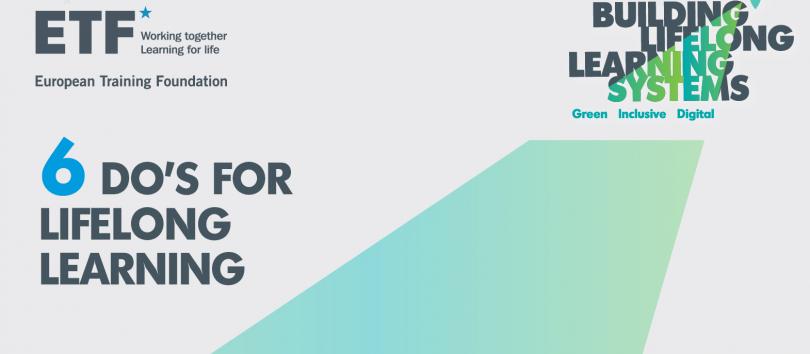
Investing in people for a fair green and digital transition
In a period of profound transformation affecting the lives and jobs of people worldwide, we need policies and systems that empower and support all citizens to regularly update their knowledge and skills – and have these achievements recognised – so they can thrive in a world of rapid technological and industrial change.
This is a key conclusion of the international conference organised jointly by the European Training Foundation (ETF) and Unesco, in cooperation with the European Bank for Reconstruction and Development (EBRD), the International Labour Organization (ILO) and UNICEF on 21-25 June 2021. Entitled “Building lifelong learning systems: skills for green and inclusive societies in the digital era”, the conference brought together policy-makers, practitioners and experts from around the world, including the ETF’s partner countries, the EU Member States, the EU institutions and international organisations.
The conference focused on how education, training and skills development system need to change to prepare people for a world of transformative change, driven by technological innovation and the imperative to move quickly towards greener economies and societies. All this is happening against a backdrop of growing inequality, changing demographics, migration and disruption due to the COVID-19 pandemic. New forms of working are emerging; new jobs are being created, and the skills needed to do existing jobs are changing.
Our education and training systems are not prepared for the deep transformation of our societies. They are based on a standardised provision with limited flexibility to meet the learning needs of a highly diversified population of learners and to rapidly evolving labour market and social requirements. They primarily value learning in formal settings recognising large chunks of skills and knowledge bundled into end-of-school diplomas and degrees; while they provide limited recognition of knowledge and skills acquired outside the formal system.
These transitions require a change in mindsets and skillsets. They require all of us to become active learners. We need to be able to act differently as responsible citizens, consumers and producers. We need to learn how to permanently develop new competences and skills enabling us to make best use of evolving technologies and keep up with changing labour markets. We need to be able to manage career paths and everyday life. In this fast-changing world, learning is a precondition for adaptation, resilience and personal growth.
To achieve this, we need a paradigm shift away from an exclusive focus on formal education and training and one-size-fits-all solutions, towards lifelong learning systems that can offer flexible and individualised pathways for each learner, combining learning in different settings, and recognising the skills of people wherever they are developed. We need systems that embed skills development and learning in broader social and economic development objectives. This means looking afresh at all aspects of learning from teaching practices, organisation of provision, validation of skills that people develop throughout their lives to new forms of partnership among different actors, with new roles and responsibilities and funding mechanisms.
Making lifelong learning real for people entails expanding learning opportunities in different settings, creating meaningful and engaging learning envrionments, providing flexible learning pathways, developing dynamic skillsets; providing guidance to navigate learning and career opportunities; and creating awareness and incentives for people to engage in learning.
Building lifelong learning systems is a long-term goal requiring a sustained effort and agility. Skills must be a priority in development strategies. There must be good cooperation and strong partnerships involving all actors, in particular the private sector. Capacity will have to be build and financial resources secured. And above all, mechanisms will have to be put in place to track the progress of reforms, and correct course when necessary.
International cooperation is vital, and the ETF will play its part in partnership with the EU and the international community.The ETF will follow up on the results of the Conference along three directions.
The first is to accompany partner countries in developing lifelong learning systems that are inclusive by design and support the skilling requirements of a fair green and digital transition. The second is to support countries and stakeholders in building stronger partnerships across different sectors of the economy. The third is to promote change in close cooperation with all our partners and stakeholders to ensure impact driven policies.
Background information:
- To know more about the conference that took place on 21-25 June: https://www.etf.europa.eu/en/news-and-events/events/building-lifelong-learning-systems-skills-green-and-inclusive-societies
- To visit the Bazaar of Ideas: https://etf.blumm.it/event/palladium-room/esposizione-etf/~pa/room/3
- If you would like to receive future updates: please contact us
Did you like this article? If you would like to be notified when new content like this is published, subscribe to receive our email alerts.